The devastating consequences of COVID-19 around the world—including in the advanced economies and Western democracies of the United States, Spain, Italy, France, and Germany—demonstrate the vulnerability of some of the most stable states to the systemic disruptions caused by an unanticipated pandemic. If some of the strongest and most stable states in the world are vulnerable to COVID-19, the most fragile ones—most of which are in Africa—deserve special attention. As I discuss in a recent book chapter, a new strategy for addressing fragility must be implemented.
State fragility remains one of the most critical challenges on the global agenda. As of 2018, 1.8 billion people lived in fragile contexts. That number will increase to 2.3 billion by 2030 and 3.3 billion by 2050. A complex set of causes—political inefficiency, social issues, economic disparity, internal and external conflicts, and natural disasters—have contributed to the persistence of fragility in general, and in Africa in particular. Fragile countries could be particularly vulnerable to COVID-19, given weak state capacity and the inability to ensure the most fundamental functions of territorial integrity, security, and basic public services—constituting a breach of the social contract.
For decades, the international community has tried to find effective solutions to end fragility. However, progress has been limited, as illustrated by the current state of fragility around the world. A new approach focusing on three pillars is therefore necessary: an implementation-centered approach bridging the gap between policy intentions and outcomes; a private sector approach building on market and multistakeholder solutions to fragility; and a decentralized approach capitalizing on urbanization and regional and subnational development. The COVID-19 pandemic gives new urgency and new context to all three of these perspectives.
Bridge the gap between policy intentions and implementation
Most policies aiming to end fragility have failed because the political economy of policy implementation was not sufficiently taken into consideration during policy formulation. Based on analysis of previous attempts to address state fragility, it is clear that the alignment of sufficient resources—including aid, foreign direct investment, and tax revenue—with fragile states requires comprehensive consideration of the political economy of implementation in the contexts of individual states. For example, as most countries around the world are adopting quarantine, social distancing, and lockdown measures in the face of COVID-19, most fragile states such as the Democratic Republic of Congo do not have the resources (financial resources, administrative capacity, and human capital) to implement them successfully. Bridging the gap between policy intention and implementation under such circumstances will require pro-poor policy interventions to address immediate challenges such as food insecurity, lack of water and sanitation (since handwashing is critical), low social protection, lack of social assistance for the most vulnerable, and limited direct cash transfers.
When Nigeria implemented lockdown measures in early April, poor communities reacted quickly, saying they could not isolate because of hunger. According to the World Food Program, 60 percent of Nigerians live below the poverty line and therefore do not have the money to stock up on food. Nigeria has promised welfare payments, but questions remain as to how the government will provide them considering the decreasing price of oil. Anger from local communities resulted in crowds of people gathering to protest, furthering the risk of transmission in a country where only about 41 percent of the population has access to basic handwashing facilities. Bridging the gap between policy intentions and implementation is critical and will require ensuring appropriate levels of resources and capacities as well as consideration of political economy when policies are being conceived.
Build on private sector and multistakeholder solutions
The private sector has a large potential to address state fragility and facilitate overall social welfare. In the short term, the private sector opens up business opportunities by increasing domestic capital flows, creating new positions and providing talent training, and shaping institutional frameworks to benefit local industrial development. In the long term, private-sector involvement has the potential to attract international investors to ensure sustainable local prosperity and stability. Moreover, by creating economic opportunities for the broader society, the private sector will contribute to conflict resolution and violence reduction.
Nevertheless, private-sector activities can only work within a mandatory, international set of regulations in conflict-driven countries that normally have weak governments. As a result, there is a need for the international community to oversee the process of mandatory regulation. For example, in the case of the Kimberley Certification Scheme, penalties were applied for noncompliance with domestic legislation, shifting the balance of incentives and resulting in efficient regulation. Legislation should also penalize private-sector actors involved in disrupting peace or enabling conflicts. The COVID-19 crisis demonstrates how the private sector can innovate at an incredibly high speed—much faster than governments—to provide a broad variety of solutions to address both health and economic challenges. As a public-private partnership, Afro-Champions has joined forced with the Africa Centers for Disease Control and Prevention to create the Africa COVID-19 Response Fund, aiming at securing at least $150 million for immediate prevention needs, and up to $400 million for the sustainable medical response to COVID-19. In Nigeria, private sector companies and philanthropists joined Aliko Dangote to form CACOVID, a coalition taking action to provide technical and operational support to medical facilities and to lead awareness campaigns. Recently, CACOVID ordered supplies for 400,000 COVID-19 tests, and is anticipating providing at least 1.7 million households with food relief packages to mitigate the impact of the lockdown on the most vulnerable people. Additionally, Guaranty Trust Bank built a COVID-19 health facility with 110 beds. Kobo-360, a technology and logistics company, has worked to keep supply chains stable while promoting social distancing by leveraging its blockchain-enabled logistics platform, which connects truck drivers and cargo companies, while also subsidizing truck drivers’ costs to keep them on the road. In Kenya, a group of business leaders have created the National Business Compact Kenya, to “accelerate local action and support government efforts in countering the pandemic.”
Capitalize on decentralization and urbanization with actions at the subnational and city levels
In addition to private sector, more attention should be given to the role of fragile cities in causing, perpetuating, or solving fragility. Foreign assistance and stabilization policies are still largely targeted at the centralized state system and in specific rural areas, which often suffer the most severe consequences of conflict, hunger, poverty, and disaster. However, in the context of COVID-19, it is clear that urban areas will be at greatest risk of significant outbreaks due to population density, and therefore require exceptional policy and humanitarian efforts.
The unique dimensions and characteristics of urban fragility require adopting a decentralized approach by which policymakers implement solutions at both rural and urban levels. Building transparent and accountable systems is the most basic way to address city fragility since divisions between local-government elites, international actors, and the local population prevent the implementation of effective governing bodies. Previous experiences in addressing the urban poverty and fragility of cities—such as Lagos in Nigeria or Kinshasa in the DRC—prove that appropriate solutions aimed at specific cities can lead to remarkable results. In fact, cities are facing incredible pressures with regard to the COVID-19 pandemic: social distancing, overwhelmed hospitals, economic disruptions, and others. As the urban population of the developing world will soon make up the majority of global citizens, a decentralized approach that fully takes into account the individual contexts of cities and local governing institutions is crucial.
Overall, the emergence of COVID-19 has demonstrated that institutions must be able to react quickly and effectively to save their citizens. Given the fragility of central states in most of the developing world, private-sector engagement—including disruptive innovation—and a city-based approach are indispensable for achieving efficient policies, as long as there is also a focus on bridging the gap between policy formulation and implementation.
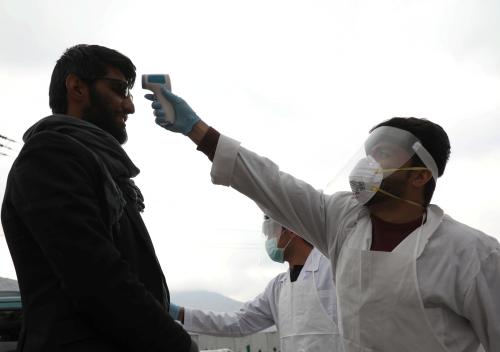


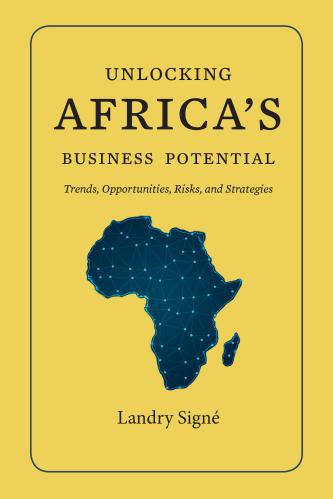
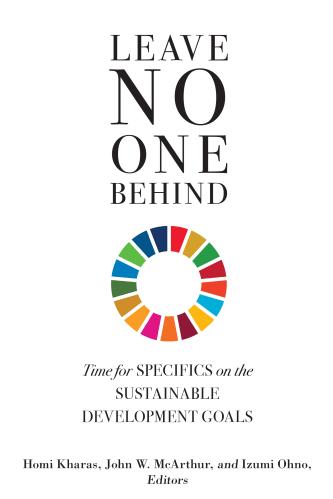
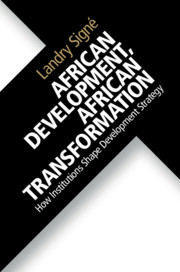

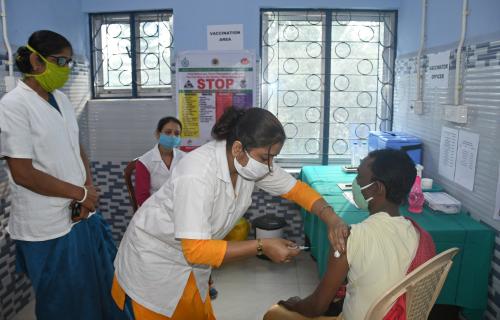


Commentary
A new approach is needed to defeat COVID-19 and fix fragile states
April 21, 2020